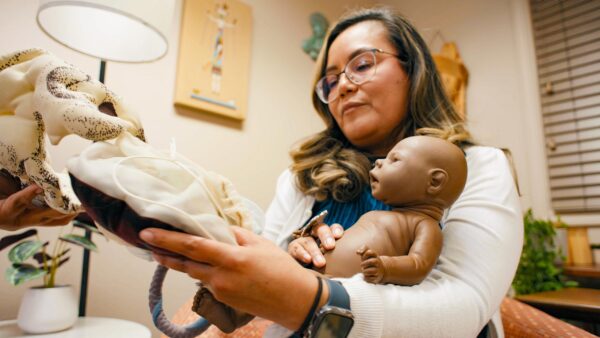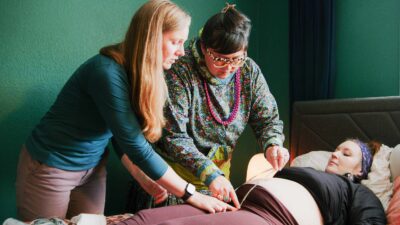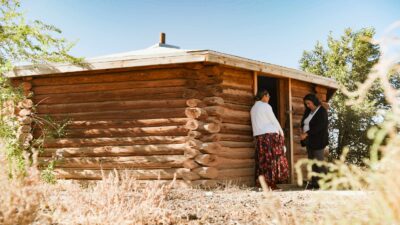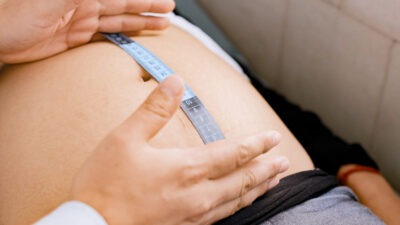What do people understand about the Covid 19 vaccines and who do they trust with information about the vaccination?
In a poll conducted in May 2021, the University of New Mexico Center for Social Policy (CSP), in partnership with many organizations, asked nearly 13,000 people nationwide who they trust as messengers about COVID-19 vaccines.
Community (family and friends) was rated No. 3 as trusted messengers – following primary care physicians at No. 1, and nurses and doctors in general, at No. 2.
In a partnership between New Mexico’s Department of Health, Albuquerque Area Southwest Tribal Epidemiology Center, Con Alma Health Foundation and the University of New Mexico Center for Social Policy, they identified community projects to support equitable vaccination efforts across the state – including messaging research and culturally-centered education campaigns.
According to the lead researcher, Dr. Gabriel Sanchez, the sheer number of people polled by CSP provided a comprehensive understanding of Americans’ hesitancy towards getting the vaccine, and how states and communities can overcome those concerns to encourage more people to get vaccinated.
Overwhelming, the poll highlighted how location and language are crucial to address vaccine hesitancy. In New Mexico, and in direct response to the survey’s findings, vaccination sites were opened during hours that accommodated people’s schedules, provided transportation and mobile clinics were set up in rural areas throughout the state. As importantly, community healthcare workers and volunteers speak the languages of the communities where they work, so these combined measures have helped address the gap in hesitancy and misinformation about Covid-19 vaccines.
Leveraging trusted messengers to combat vaccine hesitancy
There’s a lot of misinformation contributing to vaccine hesitancy. The role that trusted messengers play in a hyper-localized approach is just as important as the messages people read and hear.
Tested Messages
The poll tested 24 messages with unvaccinated people to see which made them more likely to get vaccinated.
#1
Getting a COVID-19 vaccine can protect the lives of my family, friends, and those I love.
#2
Locals have been particularly hard hit by job losses, and many of our businesses are struggling due to the pandemic. If we all get vaccinated, these businesses can open back up, and more people here in our community can get back to work.
#3
In the past year, at least 40,000 children have lost a parent to COVID-19. Millions more have a parent struggling with long term symptoms after getting infected with COVID-19. Getting a vaccine will help our children.
Local data drives high vaccination rates in New Mexico
Support from the Kellogg Foundation allowed for an expansion of the survey in New Mexico, to include Sovereign Tribes. The survey found that out of the New Mexicans who have not received the vaccine, roughly a third (32 percent) do not plan on getting it. However, 44 percent of unvaccinated said that they would get a vaccine if it were requested by their employer. The survey also found that 15 percent of New Mexicans who had their first shot do not plan to get their second dose; many think one shot is enough to protect them. This helped local and state health officials better understand how to discuss the COVID-19 vaccine with constituents.
The survey also found that people, particularly young adults and those living in urban areas, are incentivized by small gifts. This finding helped to motivate the New Mexico Department of Health programs, such as Vax 2 the Max Sweepstakes, which awarded $10 million in total prize money to New Mexicans who receive their COVID-19 vaccinations.
“The statewide survey project … was integrated quickly into community outreach efforts that resulted in the state’s 60% threshold of fully vaccinated adults this summer. The messaging survey is another example of the collaborative approach that has helped make New Mexico a national leader in vaccination.”
Gabe Sanchez, Ph.D., Executive Director of UNM Center for Social Policy.
While more than 77% of New Mexicans ages 18 and older are vaccinated, the effort to vaccinate New Mexicans is not over. As of January 2022, vaccination series completed for children ages 12 through 17 is nearly 60%. These findings offer important lessons for the continued rollout of the pediatric and booster vaccines.








Comments